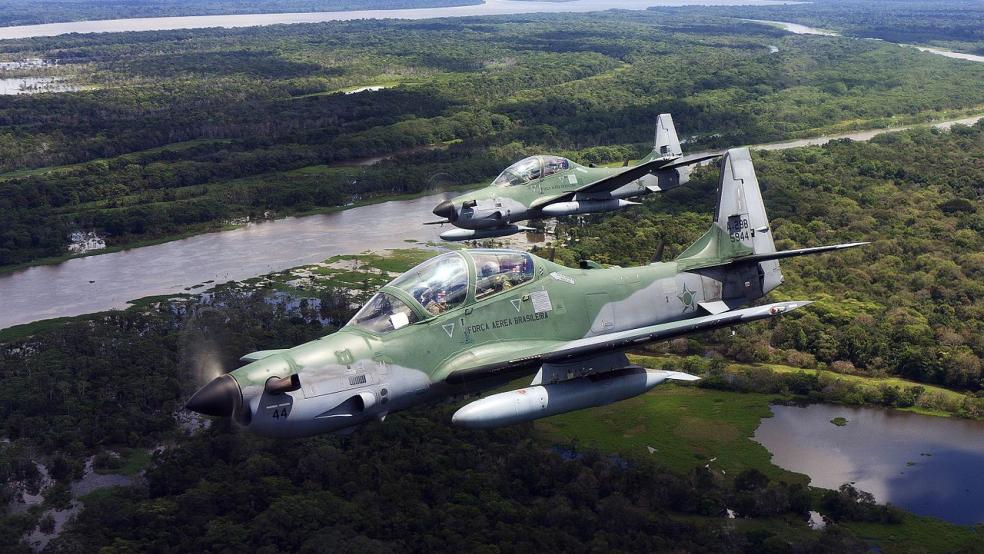The Trump administration is closing a $600 million deal to permit the sale of a dozen highly sophisticated turboprop fighter planes to Nigeria to combat the Boko Haram Islamic terrorists despite the Nigerian air force’s repeated bombing of civilian targets.
Within the next few weeks, the White House is expected to formally notify Congress of its controversial decision to sell as many as 12 Embraer A-29 Super Tucano aircraft equipped with special targeting and surveillance equipment.
Related: Trump’s ‘Hard Power’ Budget Gives Billions to Defense, Guts Domestic Programs
Nigeria – a strong African ally of the U.S. -- has been attempting to purchase the highly versatile aircraft since 2015. President Obama had given preliminary approval of the sale shortly before he left office, but the deal was then put on hold.
The turboprop light attack airplane – which costs as little as $10 million per copy or as much as nearly $50 million, depending on the specs -- is particularly effective for counter-insurgency, close aerial reconnaissance and close air support.
In skirmishes in remote areas, the Super Tucano can be a game changer. It functions and navigates well in rugged terrain with high temperatures and high humidity.
The plane is equipped with a wide array of armaments, including precision-guided munitions. It boasts advanced avionics, communications, and sensors and can operate from remote, unpaved airstrips. It has a maximum speed of 367 mph and a flight ceiling of 6.6 miles.
Related: Trump Could Face His First Fiscal Crisis Over Raising the Debt Ceiling
Although Nigeria is considered an important ally and economic partner for the U.S., its tactics in fighting Boko Haram have generated sharp criticism within the international community -- and raised questions about the wisdom of the proposed sale of the Super Tucanos.
The Nigerian air force has bombed civilian targets at least three times in recent years. Most recently, as many as 236 civilians and aid workers were killed on January 17 when a Nigerian fighter jet repeatedly bombed a camp at Rann, near the border with Cameroon, where civilians had fled to escape Boko Haram.
Amnesty International has also accused Nigeria's military of war crimes and crimes against humanity in the killings of an estimated 8,000 Boko Haram suspects. Trump nevertheless indicated in February that he would approve the plane deal during a call with Nigerian President Muhammadu Buhari, according to reports.
Related: Newsmaker: Pressure Grows on Nigeria's Central Bank Governor
The aircraft sales to Nigeria – which boasts the largest economy in Africa -- are many military sales to other countries that are undergoing a final review before being submitted to Congress for approval.
Currently, there are more than 200 Super Tucanos operating in 10 countries in Latin America, Africa, and the Middle East. With the help of the U.S., the highly lethal aircraft was added to the Afghan air force in the spring of 2016 for use in that country’s long-standing war with the Taliban. The attack aircraft is manned by Afghan pilots who were trained in the U.S. before deployment.
The plane is manufactured by Embraer S.A., a Brazilian conglomerate and one of the largest aerospace companies in the world. Embraer operates a Super Tucanos production line in Jacksonville, Florida, in partnership with the privately held Sierra Nevada Corp. of Sparks, Nevada.





